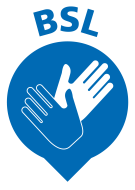Keeping patients safe with strict hygiene policies and procedures
Infection Prevention and Control (IPC) is vital for keeping patients and health workers safe and it’s part of everyday practice at NEAS.
We are committed to providing a clean and hygienic environment for anyone who uses our service, and we follow strict policies and procedures to help prevent the spread of infections, such as clostridium difficile, MRSA and norovirus.
IPC code of practice
The NHS has an IPC code of practice, which under The Heath and Social Care Act 2008 applies to registered providers of all healthcare and adult social care in England. This sets out 10 criteria against which the Care Quality Commission (CQC) judges a provider on its compliance with cleanliness and infection control requirements.
Ongoing monitoring
Compliance with the IPC code of practice is monitored through an annual audit. The cleanliness of our ambulances is also monitored monthly, and we conduct a number of other audits throughout the year, such as hand hygiene at the point of care.
How we keep you safe:
- All staff are trained in the effective prevention of cross contamination.
- Our ambulances are regularly deep cleaned inside and out.
- All equipment is cleaned thoroughly before and after use.
- We clean our hands using alcohol-based hand rub before and after every interaction with a patient.
- Where appropriate, we will wear Personal Protective Equipment (PPE) such as gloves and face masks to help prevent the spread of infection between us and patients.
Tell us if you have an infection
If you have an infection and you call 999 or use our Patient Transport Service, please let our staff know so that we can take the necessary precautions when helping you.
More information about how we deal with infection control and our policies and procedures can be found below.
{Insert links to Infection Control Policy and Audit Tool if available

